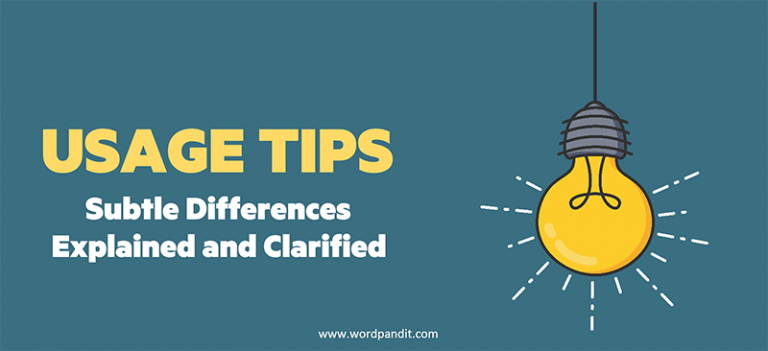Avenge vs. Revenge: A Simple Guide to Clarify Confusion ⚖️🤔
Ever found yourself hesitating between using avenge and revenge? 🤷♂️ You’re not alone. These words are often mixed up, but knowing the difference can save you from an embarrassing mistake—like saying you want to avenge a bad movie review. 🎥❌ Let’s unravel these two words and make sure you’re using the right one at the right time. 📝✨
These two words might seem similar, but they carry very different meanings and implications. ⚠️ Using them incorrectly can lead to misunderstandings, especially in emotional or serious situations. 😬 Imagine telling someone you’re seeking revenge for a friend’s injustice when what you really mean is that you want to avenge them—it makes a big difference! 👫 Understanding the subtle yet important differences between these terms can help you express yourself more clearly and accurately. 💡
Avenge
Definition: To avenge means to take action in response to a wrongdoing, usually on behalf of someone else. It’s often associated with the idea of justice ⚖️ and making things right. ✅
Pronunciation: “uh-VENJ” 🔊
Etymology: The word avenge comes from the Old French avengier, meaning to “vindicate or take action on behalf of.” The focus is on making things right, often with a sense of righteousness and fairness. 💪 It has a noble connotation, as it involves righting a wrong that has been done to someone else. 🤝
Usage Examples:
- After the theft, the villagers wanted to avenge their neighbor’s loss by finding the culprit and ensuring justice was served. 🏘️🕵️♂️
- The hero vowed to avenge his brother’s wrongful death, dedicating his life to ensuring that those responsible were held accountable. 🦸♂️⚔️
- In classic literature, many characters take it upon themselves to avenge the honor of their family or loved ones, showcasing a sense of duty and justice. 📚💖
Synonyms: retaliate, vindicate, redress, payback (in a just sense) 🛡️
Antonyms: forgive, pardon, overlook, condone 🙏
Revenge
Definition: Revenge refers to the act of seeking personal satisfaction for an injury or wrong, often with a sense of vindictiveness. 😠 It is driven by emotion and the desire to inflict harm in return for a perceived slight or injury. ⚡
Pronunciation: “ri-VENJ” 🔊
Etymology: The word revenge is derived from Latin vindicare, meaning “to lay claim to” or “punish.” Unlike avenge, it has a more personal and emotional connotation. Revenge is often about getting even and can be fueled by anger or a need for retribution, sometimes without concern for fairness. 😡🔥
Usage Examples:
- She sought revenge on the person who betrayed her trust, determined to make them suffer as she had. 💔💥
- In the movie, the villain’s motive was purely about revenge, and he didn’t care who got hurt in the process. 🎬🦹♂️
- Revenge often involves an intense desire to see the wrongdoer suffer, which can lead to destructive actions and unintended consequences. 💣😓
Synonyms: retaliation, payback, vengeance, retribution 💢
Antonyms: mercy, absolution, forgiveness, forbearance 🕊️
Comparison and Contrast
Think of avenge as justice-driven ⚖️ and revenge as emotion-driven. 💔 When you avenge someone, you’re doing it to right a wrong, often for someone else, and with a sense of fairness. 🌟 When you seek revenge, you’re doing it for yourself, fueled by personal anger and a desire to get even. 🔥
For example, Batman 🦇 wants to avenge his parents’ death by protecting Gotham City, ensuring that no one else suffers the same fate. He avoids seeking revenge against criminals for personal satisfaction, as he understands that revenge could lead him down a dark path. 🖤 In contrast, a character like the Count of Monte Cristo seeks revenge on those who wronged him, focusing on making them pay personally for their betrayal. 💰⚔️
Contextual Usage
- Avenge: “The soldier wanted to avenge his fallen comrade by bringing justice to those responsible for his death.” 🪖💔
- Revenge: “The character was blinded by the need for revenge after being wronged, unable to see how it was consuming his life.” 😠👀
In a single context: “She planned to avenge her friend by bringing the wrongdoers to justice, but she knew that seeking revenge would only make her bitter and lead to more harm.” 🤝💢
Mnemonic Devices
- Avenge is about righting a wrong. Think of the A in avenge standing for action taken on behalf of another, or altruism, as it often involves helping someone else. 🤲
- Revenge is more personal. The R in revenge stands for rage, a strong emotion that drives someone to get even. 🔥
To help remember the difference: Avenge is about achieving justice ⚖️, while revenge is about satisfying anger. 😡
Related Confusing Word Pairs
- Imply vs. Infer: Imply is what the speaker does, while infer is what the listener does. 🗣️👂
- Effect vs. Affect: Effect is usually a noun, while affect is typically a verb. 📝
- Elicit vs. Illicit: Elicit means to draw out a response, while illicit means something illegal or forbidden. 🚫
- Complement vs. Compliment: Complement means something that completes, while compliment is a flattering remark. 💬✨
Summary
To sum up, use avenge when you’re seeking justice on behalf of someone or something else. ⚖️ Use revenge when you’re seeking personal satisfaction for a perceived wrong. 😡 Avenge has a noble connotation, while revenge is often associated with personal anger and vindictiveness. Now that you know the difference, you’re ready to handle these words with confidence! 💪 Whether you’re writing a story or simply trying to express yourself more clearly, understanding these distinctions will make your language more precise and impactful. ✨













